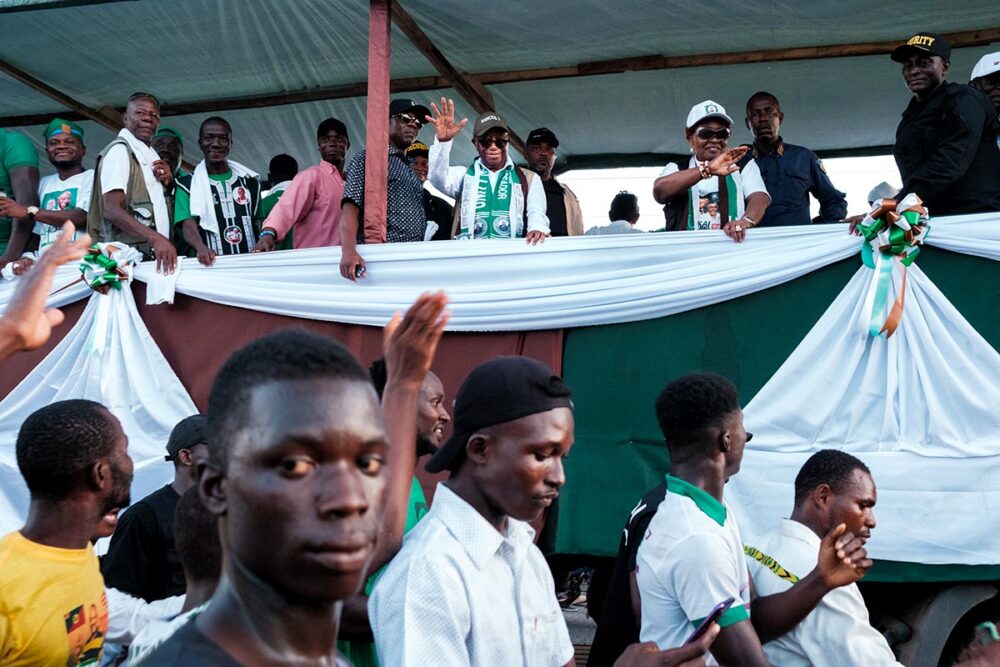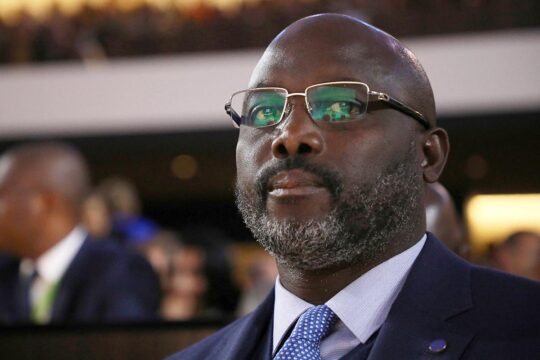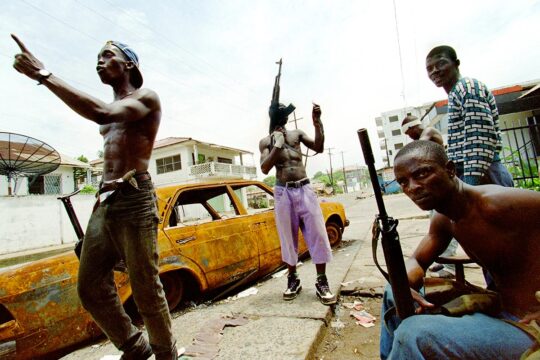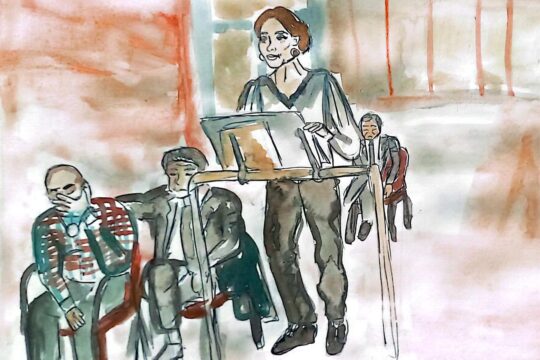In Liberia, there is a conflict about what the conflict was about. The Truth and Reconciliation Commission (TRC) 2009 final report, however, determined that the history of political violence and Liberia’s destructive civil wars (in 1989-1997 and 1999-2003) are attributable to the origin of the nation-state. Liberia is Africa’s first Black Republic. It was never formally colonised but conceived under problematic circumstances. Despite this pertinent finding, discussions over what led to the civil wars abound. Some maintain that it was caused by inter-ethnic conflict. Conspiracy theorists blamed it on the machination of the Americo-Liberian elites and how they upended indigenous people’s rule in the late 1980s through the plot of a civil war. Yet, others contend that the war was caused by the elites’ greed for power and wealth.
The lack of consensus on what the war is about is inhibiting the fight for justice and accountability. These conflicting viewpoints are potent ammunition in the arsenal of spoilers. Ethno-nationalists, some of whom are named as notorious perpetrators in the TRC report, are using war memories as weapons. War crimes are being justified, that it was a means to an end while blaming others for the human casualties and destruction of properties. In some instance, war memories are used to de-legitimatise the candidacy of others, especially those whose wealth are traceable to the war years. Some are using it to forge new ethno-consensus, for it is packaged and transmitted in counties where ethnic memories are rife. Accordingly, how the past is viewed and interpreted has shaped local knowledge and understanding of the war.
In some counties, it has forged certain ethnic solidarity in how to vote and who to vote for. This has emerged as one of the most consequential voting patterns in post-war Liberia. Ellen Johnson Sirleaf (2006-2018) and George Weah’s (2018-2023) election victories were direct outcomes of this voting pattern. The same goes with Joseph Boakai, Sirleaf’s former vice-president who was officially elected on November 20 as Liberia’s third post-war president. In post-war Liberia, the presidency has never been won without a decisive victory in Nimba county, the second most populous county. Prince Johnson, an infamous former warlord, now a politician, is the one to make that decision. Like his predecessors, Boakai accepted the endorsement of Prince Johnson, the kingmaker in Liberia’s post-war politics.
War Survivor
In the twelve years of his vice-presidency, Boakai’s views on the TRC and transitional justice were unknown. When he first declared his candidacy in 2017, he came out and openly called for justice. His stance threatened to break away with the elite politics of amnesia. In 2021, reflecting on the failure to implement the TRC recommendations, Boakai offered a thoughtful remark: “You cannot live in a society, create harmony and reconciliation when most of the people don’t believe that they’re responsible for anything, they’re evasive about what they did, and they seem as though they don’t even care. When you have that kind of society, reconciliation becomes difficult.” Boakai’s view about justice and civil war-era accountability seemed emphatic and unambiguous.
Now that he is the president, views are divided.
Some are hopeful that Boakai would deliver on his promise of wartime accountability and the fight against corruption. Optimism for Boakai is informed by his Unity Party’s perceived legacy and by his personal history.
Boakai is Liberia’s first post-war president who did not come from the diaspora. Johnson Sirleaf and Weah never lived through the civil war and they both had permanent addresses in the West prior to their elections. Boakai has lived in Liberia all his life (except for a brief period in Southern Sierra Leone as a refugee), experienced the civil war, and endured the hardship imposed by it. Compared to other candidates, he is viewed as someone without a diasporic confusion, a mentality of divided loyalty between the West and Liberia. This makes Boakai stand out. In some quarters, his victory is dubbed as “homeland solution for a homeland problem” rather than a diasporic solution to a homeland problem. In the consciousness of optimistic Liberians, he is therefore more likely to explore practical solutions to some of the pushback against the TRC final report.
Learning from past mistakes?
More significantly, he comes from Lofa, the county that records the highest number of sites of massacres (36) in Liberia. In particular, he hails from Foya, a district that experienced some of the most horrific acts of violence. There, every year, 23 June 1993 is remembered as “Black Monday.” In the collective memory of ethnic Kissi, Boakai’s clansmen, that day commemorates the sadistic execution of fifteen locals in what has been described as revenge killings. In 2021, the horrors of this dreadful event were retold in a Swiss Court that tried and convicted Alieu Kosiah for war crimes, identified as the mastermind of Black Monday.
Boakai’s election also comes on the heels of two national reflections.
In February 2022, Liberians commemorated 200 years when Liberia was established as an outpost for freed slaves and for Black people everywhere. This moment shed a grim light on how far Liberia has strayed from its national purpose – from an index case of Africa’s first republic to a failed state and now a post-conflict society still reeling from the horrors of two civil wars.
In August 2023, Liberians commemorated twenty years of “negative peace” since the signing of the Accra Peace Agreement. This reflection revealed how the lack of implementation of the TRC report is normalising violence, post-war corruption, and uneven development progress across the society. In Liberia, the search for transitional justice has spanned 20 years, covering two presidencies. Johnson Sirleaf and Weah have been somewhat hands off. Boakai – who is not mentioned in the TRC report and lived through the conflict – is assessed to demonstrate stronger political will as he learned from the mistakes of two post-war presidencies. Some Unity Party loyalists are hopeful that Boakai will govern by returning to some of the unfinished business of the party.
Unity Party’s legacy
In December 2012, the Unity Party-led government launched the National Vision 2030. Under the theme “One people, one nation, united for peace and sustainable development”, it was conceived with the view of addressing some important national questions: where are we coming from? Where are we now, and where do we want to go? The transitional justice component, described as the National Road Map for National Healing, Peace Building and Reconciliation, was put together by a mix of government bureaucrats and experts in the field. I represented the Governance Commission in the “technical” working group. The Road Map is essentially a repackaging of the non-punitive components of the TRC report. It has almost everything in it except the establishment of a war crimes court. This document was presented to the Liberian legislature – the House and the Senate. As vice president, Boakai served as the president of the Senate and presided over its deliberations. The National Vision as articulated in its strategy was never fully implemented. Two attempts to adopt new constitution failed to gather the required two-third votes at a national referendum. Likewise, the National Symbols projects and a failed attempt to write of a general and comprehensive history for Liberia.
Boakai brings a great deal of institutional memory to the challenges and successes of rebuilding Liberia and the elites’ struggle with the TRC final report. However, given the complexity of Liberia’s transitional justice context, Boakai’s ability to deliver on his promise for justice and accountability might largely depend on his physical energy, age, and health.
A one-term president?
In Liberia’s electoral history, Boakai, at 78, is the oldest person ever to be elected to the presidency. His failing health and dependency on a pacemaker suggest that his presidency is one grim chance away from being incapacitated.
Taken together, the circumstances reveal at least two interesting possibilities. Liberia’s constitution allows for two terms, six years a piece. Twelve years is seen as an adequate time to execute a transformative agenda. The second and final term is viewed as a period for legacy building.
If Boakai doesn’t intend to seek re-election because of old age, his first term would be his final one. Having served in the public sector for more than forty years and then vice-president for 12 years, he has demonstrated being committed to public service and less towards material acquisition. Boakai has remained in his house built in the late 1970s, and never rebuilt a home when he was vice president. For the optimists, it's Boakai’s modest lifestyle that makes his declaration of no reconciliation without justice believable. This is why a majority of Boakai’s supporters believe that his election as President is geared towards one thing, to complete the unfinished business of the Unity Party government in which the implementation of the TRC final report is a big-ticket item.
Prince Johnson lurking in the shadows
However, analysis about why Prince Johnson endorsed Boakai was primarily based on the fear that Weah’s re-election would mean he was free to do as he wished in his final term, and would have returned to his earlier declaration of establishing a war crimes court for Liberia. Boakai, as a potential one-term president is not too far off the mark. But there is another conversation taking place: Boakai’s vice president Jeremiah Kpan Koung is a protégé – some say the godson – of Prince Johnson, the elephant in the room.
In every election year, Liberian cartoon artists used their craft as medium of effective propaganda. Each cartoon has a dialogue explaining the scene and this year all the messages were consistent. On one of them, Boakai’s wife, Katumu is heard lamenting about the bad decision he made to allow Prince Johnson to use him; while in the other messages, the former warlord and his protégé Koung are heard laughing at Boakai’s fate, that he’s stupid and fell for their ruse. The cartoon images are accurate representation of how Liberians view Koung as the second-in-command, a trojan horse and a president in-waiting. According to the Liberian constitution, Koung is next in the line of succession when the President is declared incapacitated. With Koung as President, it’s assumed Prince Johnson would be the man lurking in the shadows, calling the shots. And his first judgement call would be to tear down the TRC report and bury it for good.
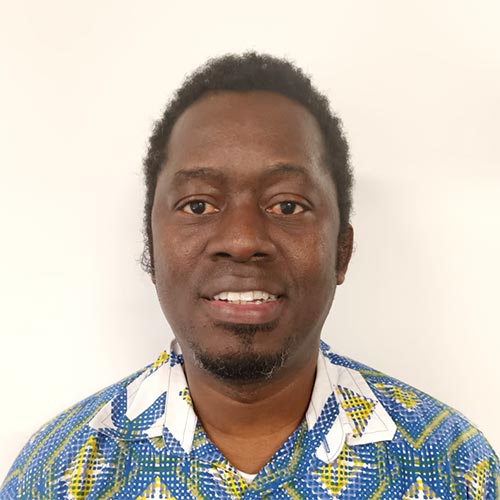
Aaron Weah (no relations to President George Weah) is a civil society activist and a transitional justice researcher with more than fifteen years experience. He is a co-author of “Impunity Under Attack: Evolution and Imperatives of Liberia’s Truth and Reconciliation Commission” and a doctoral candidate at the Transitional Justice Institute at Ulster University, United Kingdom. He has investigated grassroot community memorialisation of political violence perpetrated through massacres (from 1979 to 2003). He is a research fellow at the Ducor Institute, a Liberia-based think tank.


